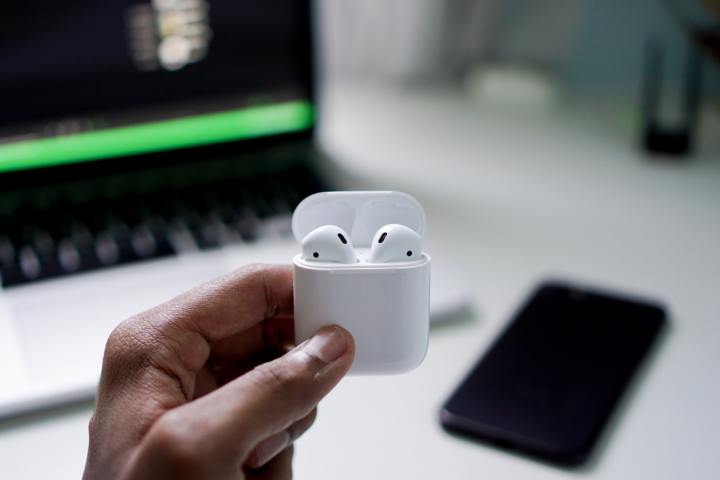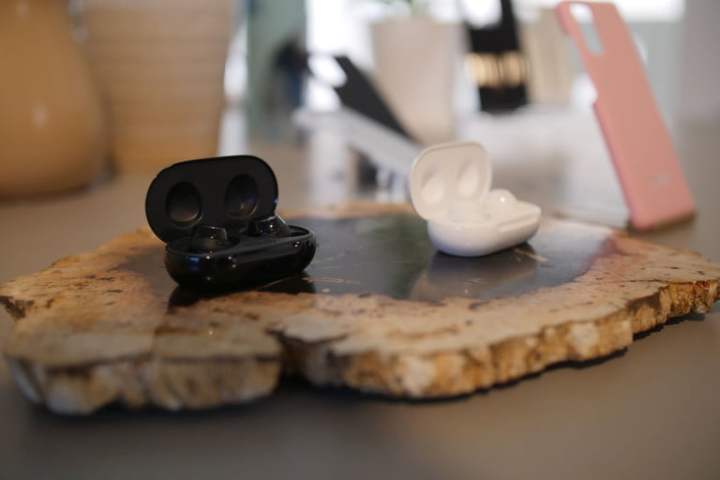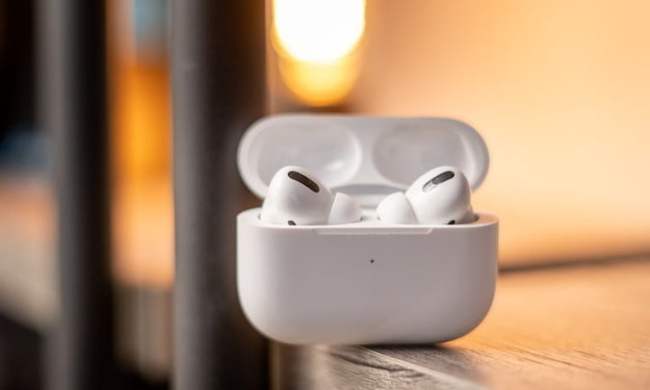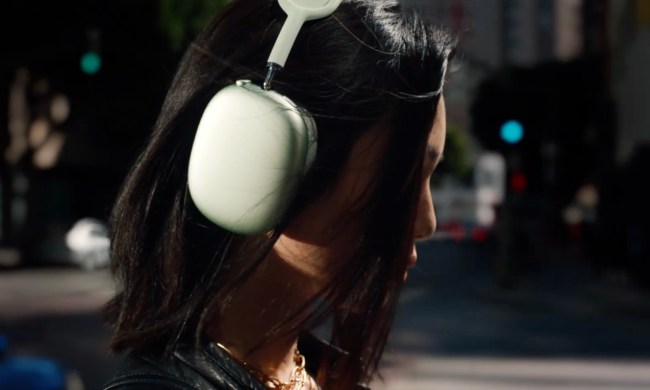Apple and Samsung. It’s hard to think of two bigger rivals in the mobile world, and that includes the ever-expanding true wireless earbuds space. In 2019, that battle was between Apple’s second-generation AirPods and Samsung’s Galaxy Buds, which, despite being less popular, were our clear favorites over Apple’s aging Pods (not to be confused with the newer, much pricier AirPods Pro).
In 2020, Samsung released its own second-generation product, the Galaxy Buds+. Do the standard AirPods stand a chance against Samsung’s newest true wireless earbuds? Here’s how the two stack up.
Price

Apple’s base price for the AirPods is $159. You can sometimes find them for less when they’re on sale, but as with most Apple-branded products, that doesn’t happen often. That price is for the non-wireless-charging version. If you want a wireless charging case, the price jumps to $199.
Samsung’s Galaxy Buds+ start life at $150 — around $20 more expensive than the regular price of the Galaxy Buds. Given that the Buds+ came with a wireless charging case just like their predecessors, they’re the clear leader on price.
Winner: Galaxy Buds+
Sound quality

We already thought the first Samsung Galaxy Buds sounded better than Apple’s AirPods. Since Apple hasn’t done anything to improve the second-gen AirPods in this regard, it’s hard to imagine that the next Galaxy Buds wouldn’t win this category again.
Adding fuel to this notion is that the Galaxy Buds+ are tuned by AKG and sport dual dynamic drivers, one serving as a tweeter and the other as a woofer. The current Galaxy Buds (and the AirPods) only have single dynamic drivers. In our experience with earbud drivers, two is usually better than one.
In our experiences with the Galaxy Buds+, this was exactly the case. Once again, Samsung’s buds were the clear winner over the standard AirPods, though they didn’t quite have what it takes to square up to the AirPods Pro.
Winner: Galaxy Buds+
Battery life

Apple’s AirPods haven’t been the best true wireless earbuds in terms of battery life for quite a long time (if ever), though their 5 hours of playback time once helped set the standard in the genre. However, that’s augmented by a still-impressive 24 hours of total outlet-free time with the charging case. Many other new true wireless earbuds improve on these numbers, and while the Galaxy Buds+ do not, they have made an enormous gain on the first stat.
The earbuds have a claimed 11 hours of playback time before they need a top-off. That number even beats the Powerbeats Pro and Master and Dynamic MW07 Plus, which offer an already impressive 9 hours and 10 hours of playback time, respectively. In addition, they offer a claimed 7.5 hours of total talk time, which again crushes the AirPods, and according to Samsung, can be charged for just 3 minutes for a full hour of playtime when they’re dead.
The Galaxy Buds+ case only holds one full recharge (an odd decision in our opinion), so the AirPods technically still have a slight edge in total playtime. But, for most people, it’s about how long you can go before needing to return the earbuds to their case, and the Galaxy Buds+ win that race by several miles.
Winner: Galaxy Buds+
Water-resistance

Despite giving its AirPods Pro IPX4 water resistance, Apple never provided its AirPods with an official water-resistance rating. Not that this has stopped people from taking them to the gym or using them for running, but the point is that Apple’s regular AirPods are much more susceptible to water damage than most earbuds in their class.
Unfortunately, Samsung hasn’t seen fit to increase the IP rating for its Galaxy Buds+, offering only IPX2 splash resistance. Nonetheless, IPX2 is better than no IP rating at all, so guess who wins this round?
Winner: Galaxy Buds+
Convenience

Apple’s AirPods pack the Apple H1 wireless chip, which means you can summon Siri hands-free — a convenient feature, especially if your chosen activity makes it hard to reach your ears or your phone. However, where Apple continues to inconvenience its customers is volume control, something you can only do with Siri or your phone.
Samsung’s Galaxy Buds+ won’t let you bark commands without pressing a button, but you will likely be able to change the volume using the earbuds. They also offer wing and eartips for a more customizable fit when working out.
When you add the convenience of wireless charging (for less money than Apple’s non-wireless-charging model), we think the scales tip in favor of the Galaxy Buds+. That is, unless you really love Siri.
Winner: Galaxy Buds+
Conclusion
It’s a clean sweep, and objectively speaking, it’s not that much of a surprise. We thought Samsung’s previous model was the better product overall, and with the improvements the company made for its latest buds, it was almost expected that the Galaxy Buds+ would continue to outshine the AirPods.
From price to sound quality and everything else in between, it’s really not much of a contest at this point. Apple’s AirPods are good, don’t get us wrong. The Samsung Galaxy Buds+ are just better.



